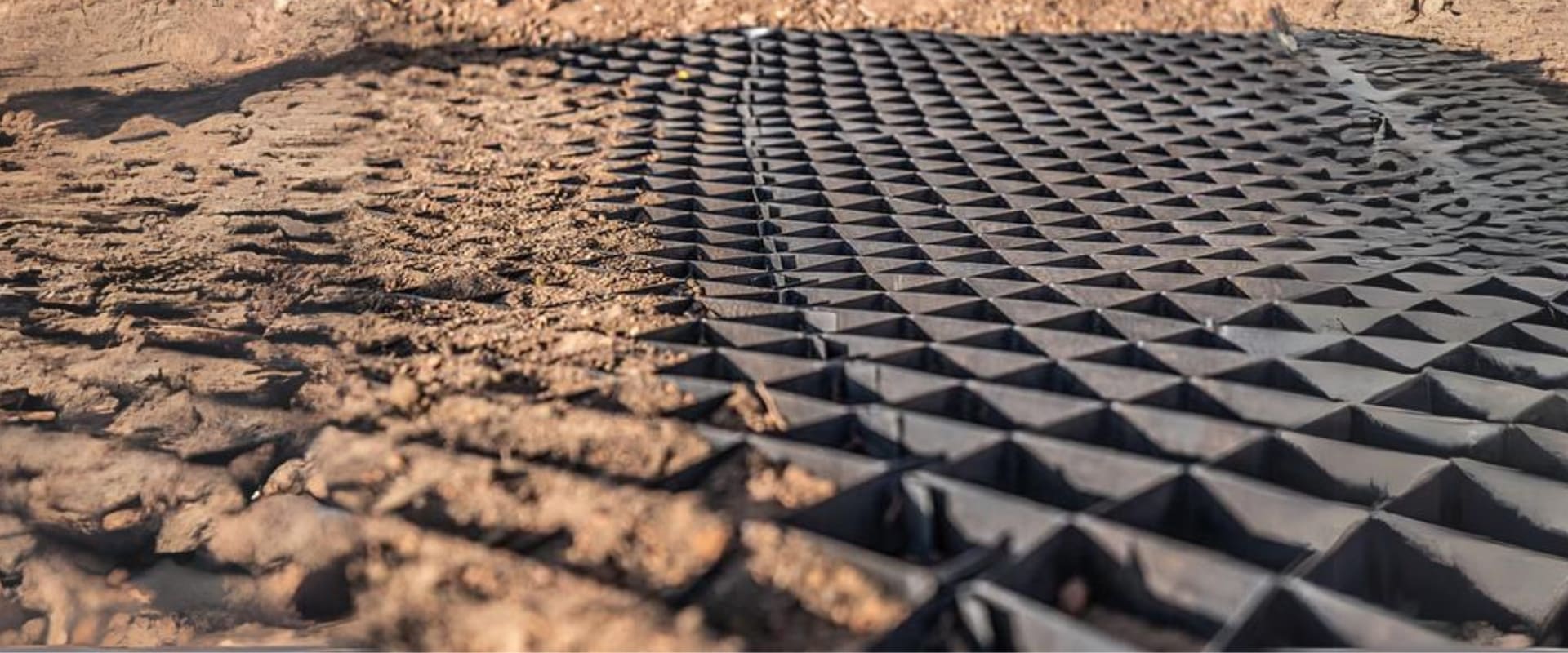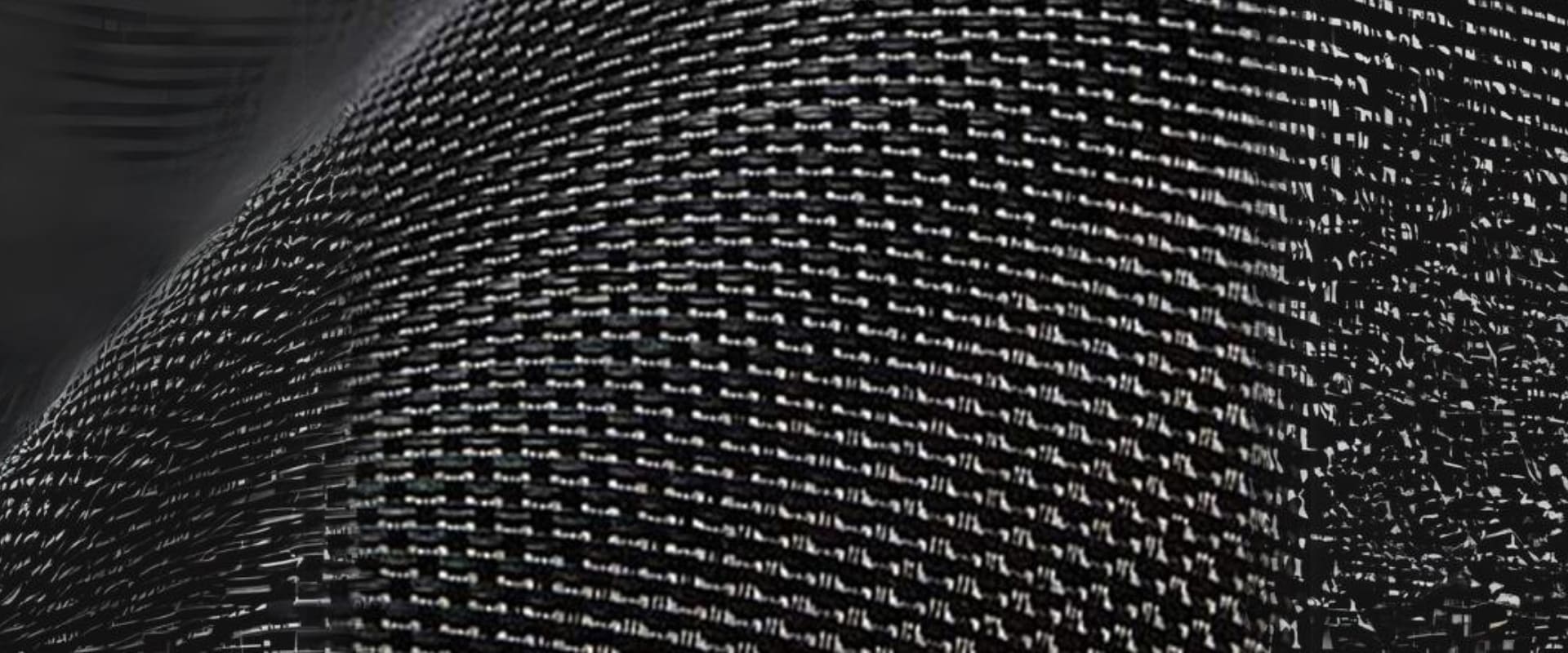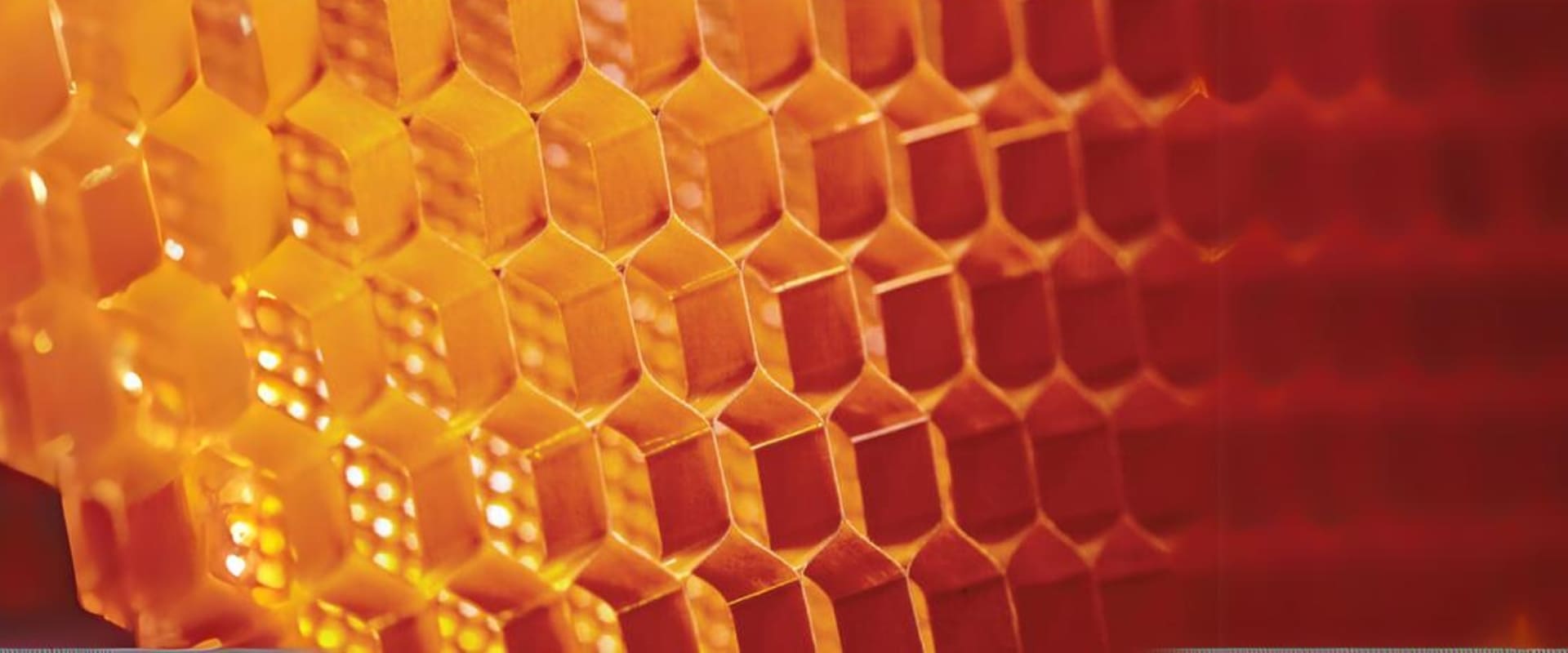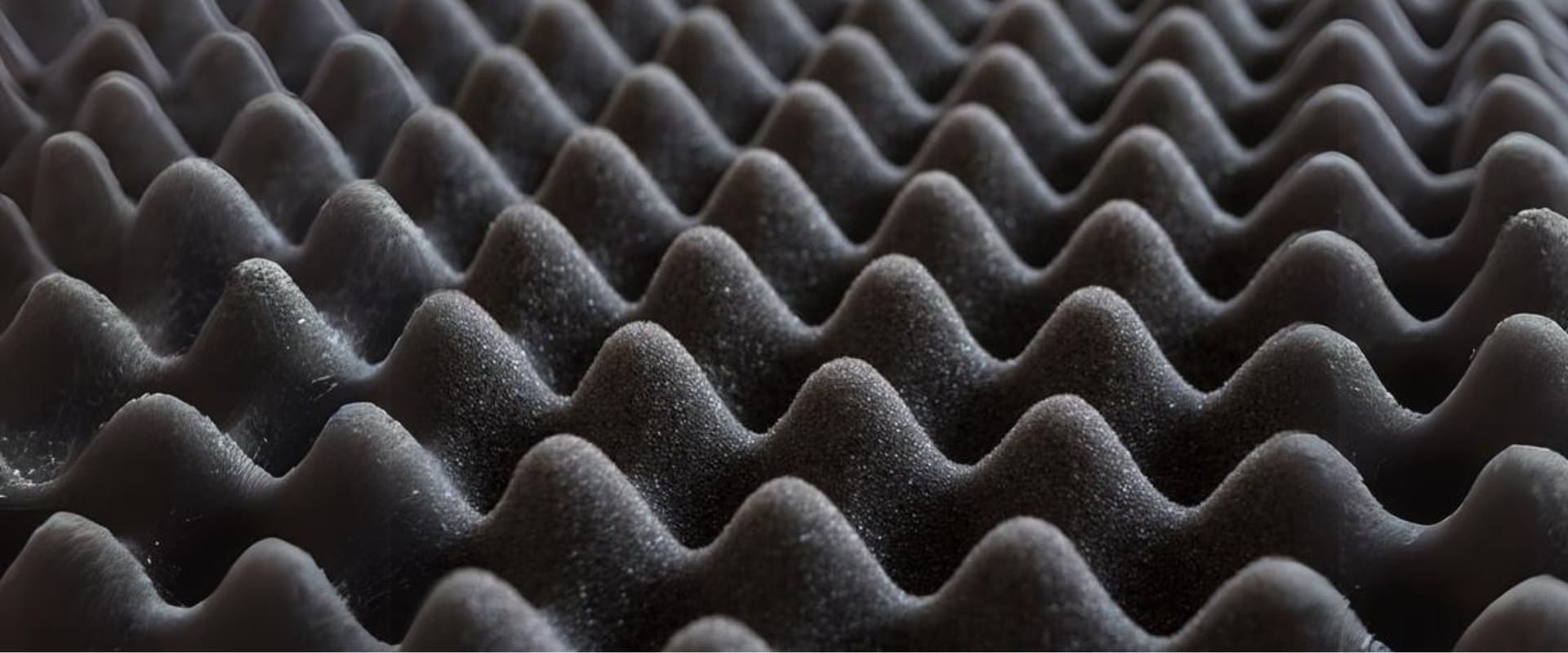
|
What We Do?
At M19 Lab, we're assisting various Technical Textiles manufacturers to ensure high quality fabric products by providing access to advanced Technical Textiles testing products & services.
R&D Solutions
At M19, we understand that Technical Textiles manufacturers are facing increasingly complex issues from increasing regulatory compliances, performance sustainability & profits. We help you to meet these challenges by deploying our custom-designed Technical Textiles Lab Products.
|
Our Products
AI BASED | ULTRA - HIGH PRECISION | INDUSTRY SPECIFIC
|
Gas Permeability Analyzer
The Gas Permeability Analyzer (Model: GP-100) is a sophisticated instrument designed to measure the rate at which gasses pass through textile materials under controlled conditions. In the technical textiles industry, Gas Permeability Analyzer plays a crucial role in product development, QA/QC, and performance evaluation. They enable manufacturers to assess the breathability, moisture management, and thermal regulation of various textile materials used in applications such as protective clothing, geotextiles, medical textiles, and agricultural textiles. By accurately measuring gas permeability, the GP-100 device helps manufacturers optimize the material selection, design, and processing parameters to meet specific performance requirements and regulatory standards. It provides valuable insights into the functionality and durability of fabric products, allowing continuous improvement and innovation.
ASTM D737-18, ISO 9237, ISO 7231, DIN EN ISO 9237,
JIS L1096, GB/T5453, GB/T13764 |
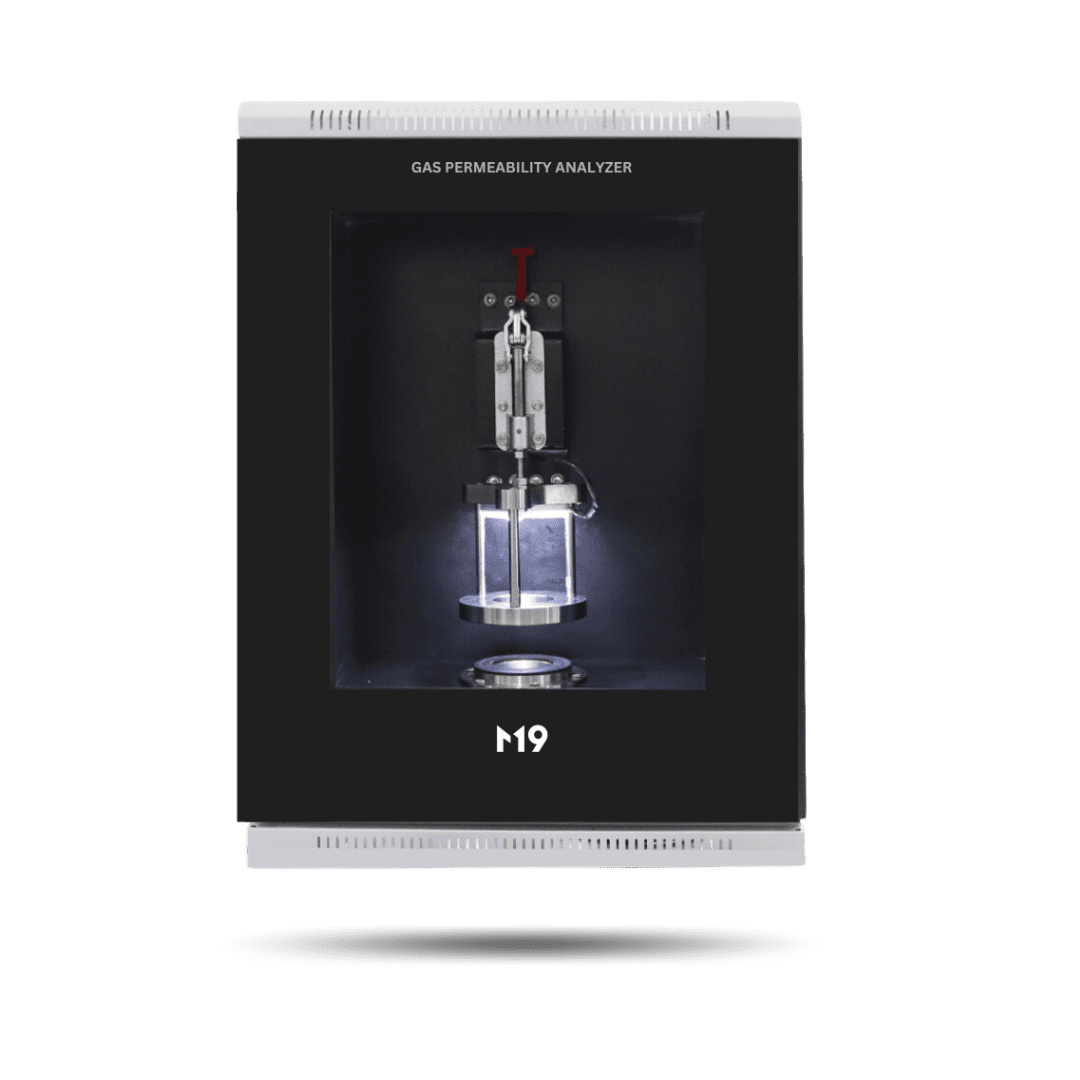
|
|
Diffusional Permeability Analyzer
The Diffusional Permeability Analyzer (Model: DP-50) is an advanced instrument used to measure the permeability of fabrics to gasses, vapors or small molecules through diffusion process. This property is important for various applications such as protective clothing, geotextiles, and industrial textiles. By measuring the diffusion of gasses through the fabric, the DP-50 device helps manufacturers and researchers assess and optimize the performance of textile materials by providing precise measurements of diffusional permeability.
ISO 15105-1, ASTM D1434, JIS K 7126, GB 1038
|
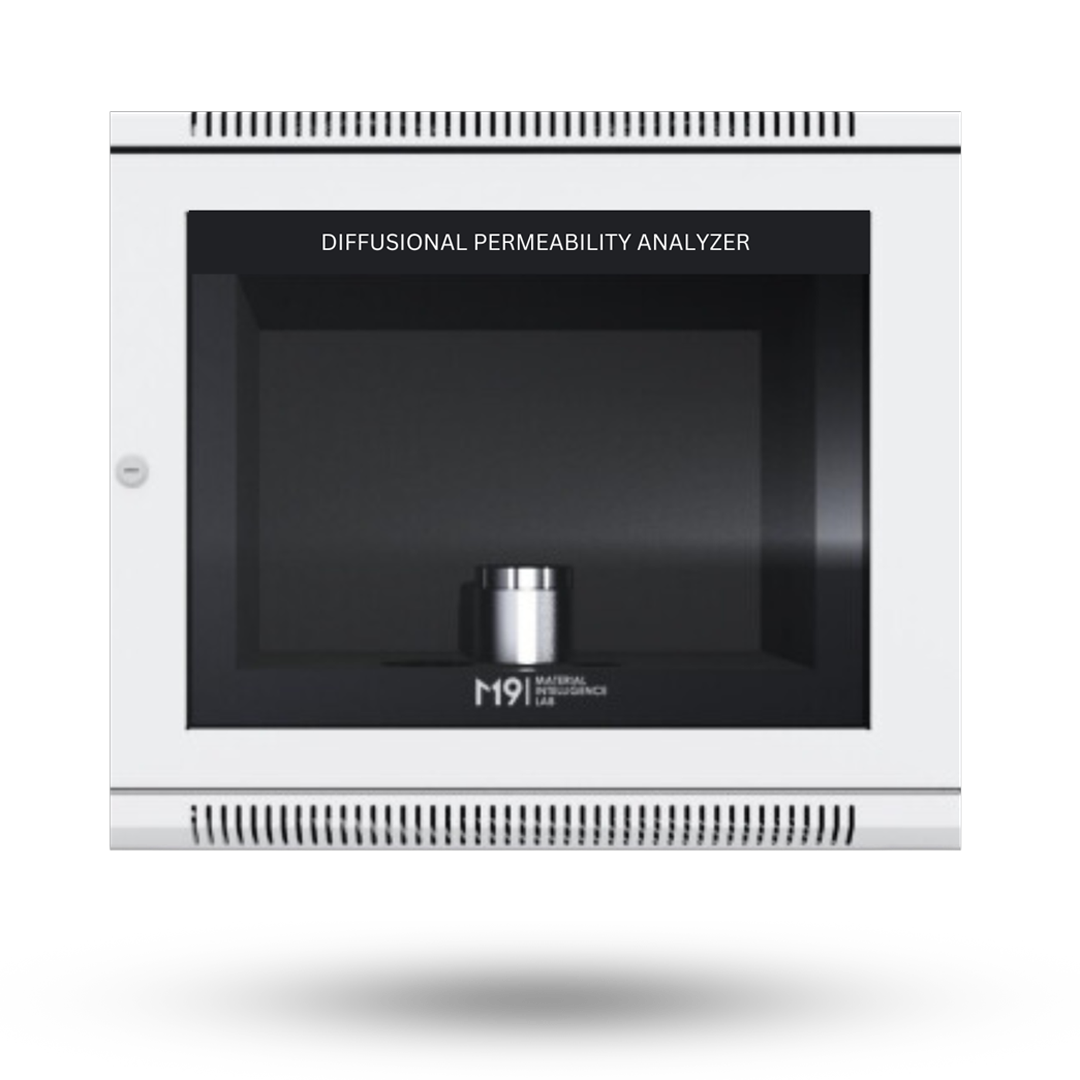
|
|
Micropore Analyzer
The Advanced Fabric Micropore Analyzer (Model:MPA-100) utilizes Liquid Displacement and Capillary Flow Porometry techniques to determine absolute and nominal micron ratings. This device is specifically tailored for various types of microporous fabric products, making it an ideal choice for evaluating the absolute/nominal micron rating, pore size distribution of a wide range of textile products. It is an indispensable tool in the technical textiles industry, allowing manufacturers and researchers to develop and tailor high-performance textiles, maintain quality standards, and meet regulatory requirements.
ASTM F316, ASTM D6767
|
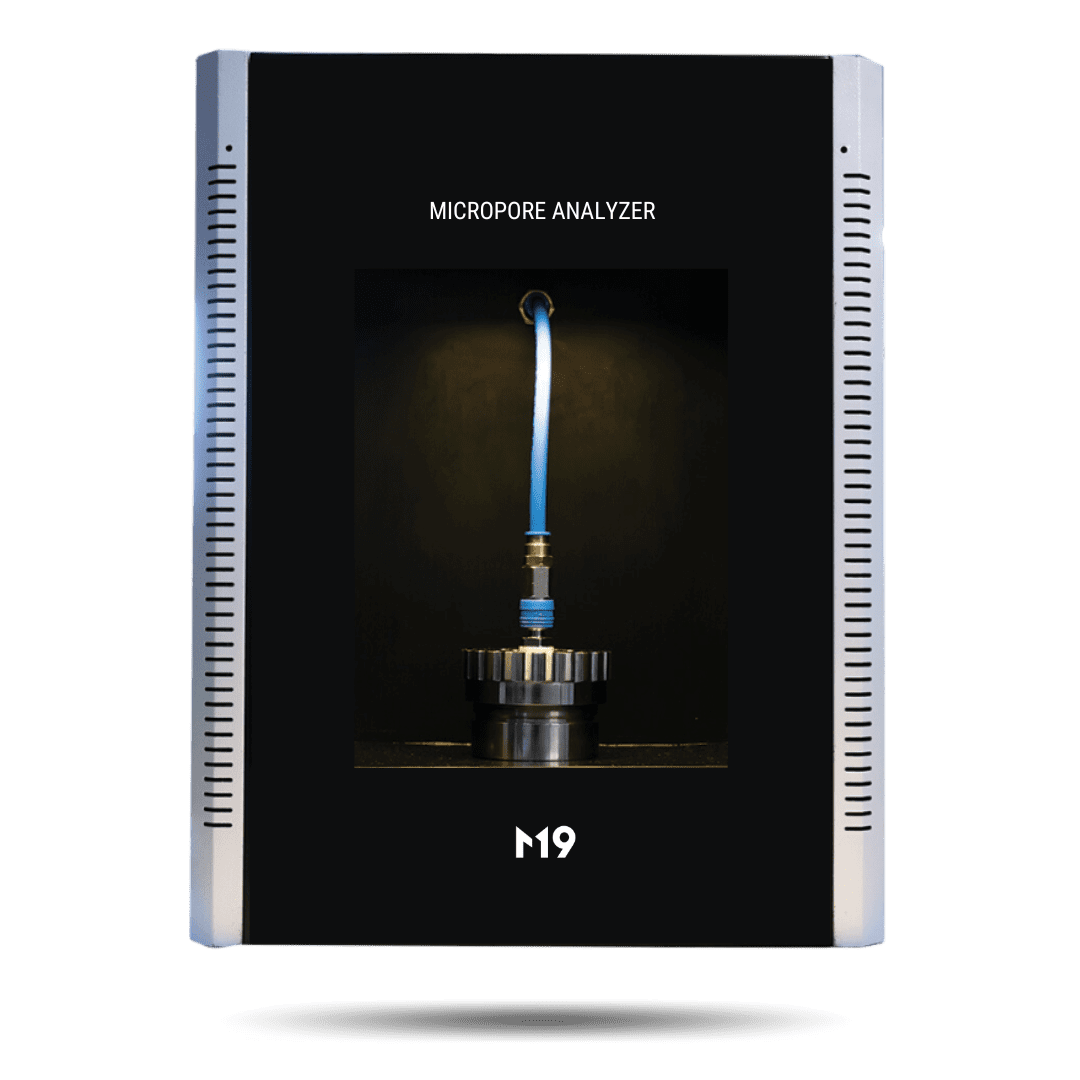
|
|
NanoPore Analyzer
The Nanopore Analyzer (Model:NPA-500) device distinguishes itself as a state-of-the-art Pore Size Analyzer, equipped with remarkable capabilities. Its advanced technology, leveraging both Liquid Displacement and Capillary Flow Porometry to determine absolute and nominal pore size. This device is specifically tailored for various types of coated and laminated fabrics, making it an ideal choice for evaluating the performance of a wide range of textile products and providing accurate and detailed insights into fabric pore structure. It is an indispensable tool in the technical textiles industry, allowing manufacturers and researchers to develop and tailor high-performance textiles, maintain quality standards, and meet regulatory requirements.
ASTM F316, ASTM D6767
|
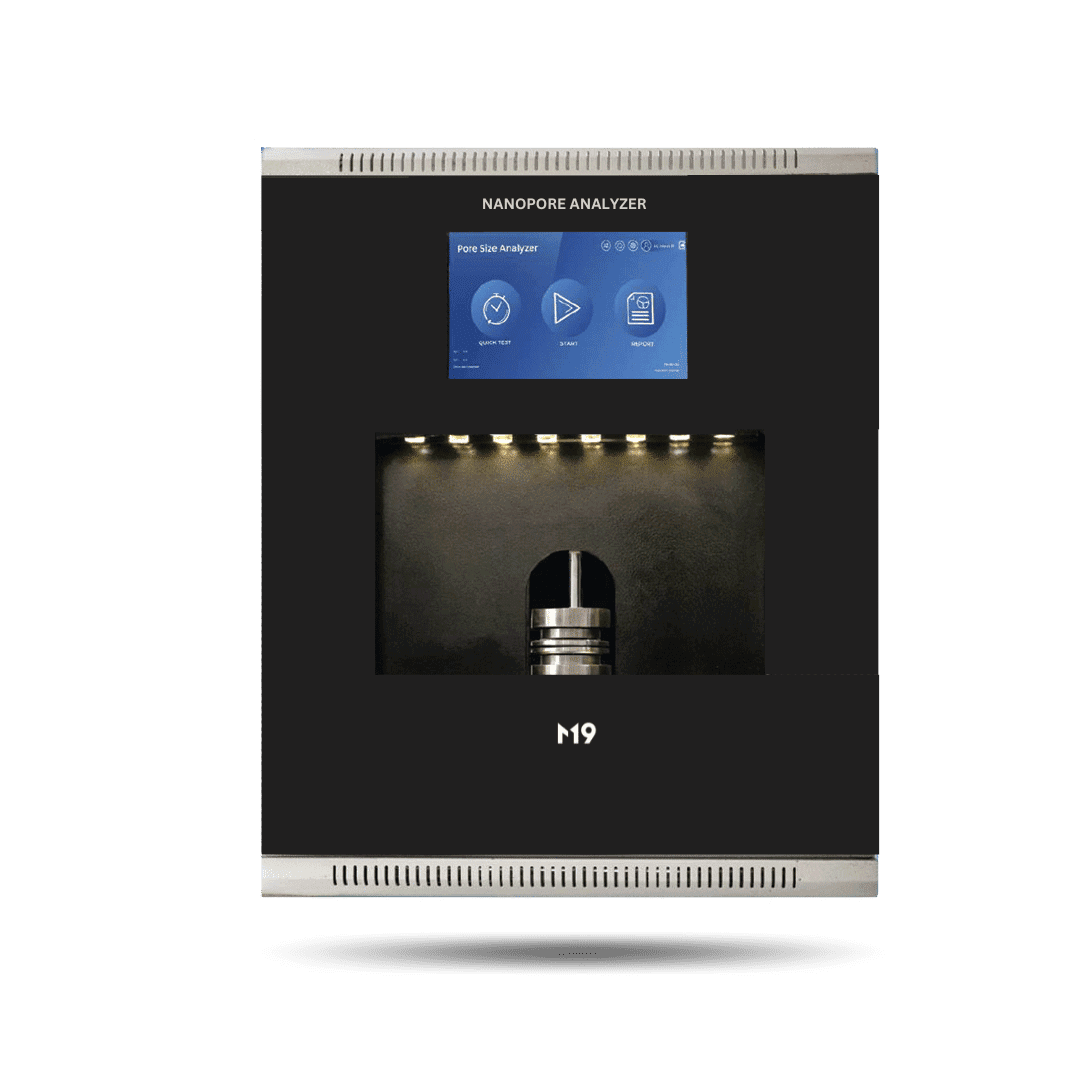
|
Hydrostatic Pressure Analyzer
The Hydrostatic Pressure Analyzer (Model: HPA-50) is integral to the technical textiles industry, offering critical quality control and product development capabilities. This analyzer assesses water resistance in fabrics under pressure, ensuring that products like waterproof fabrics, medical textiles, and geotextiles meet stringent performance standards. It is indispensable in testing fabrics for evaluating barrier properties in textiles and durability in water resistance applications. Additionally, the HPA-50 device is crucial in optimizing PPEs, Coveralls, Sportswear, and other performance fabrics for comfort and functionality. This instrument plays a pivotal role in guaranteeing the quality, performance, and reliability of technical textiles across a spectrum of industries.
AATCC 127, ISO 811, ASTM D751, EN 20811, GB/T 4744
|
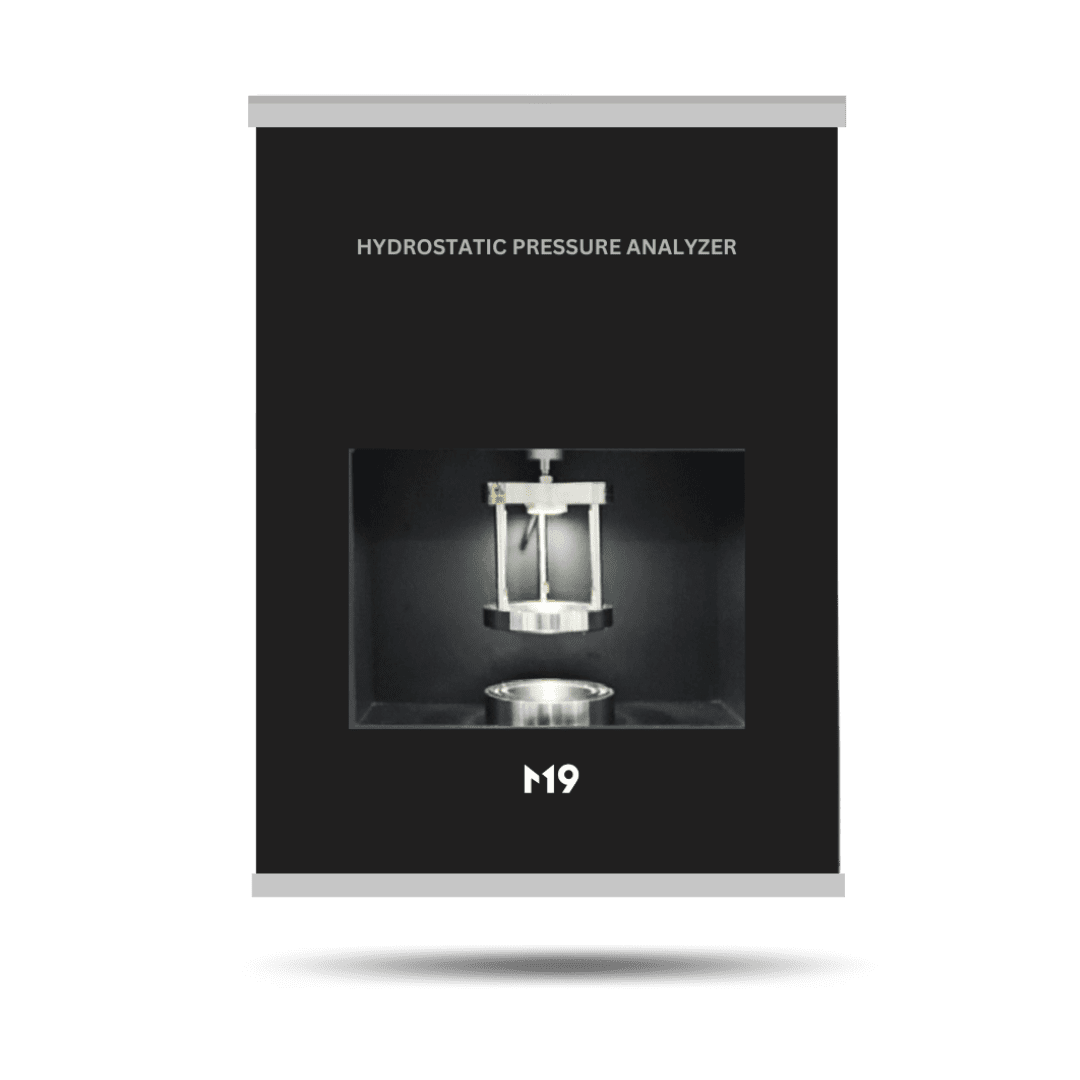
|
|
Synthetic Blood Penetration Analyzer
The Synthetic Blood Penetration Analyzer (Model:SBP-50) is utilized to assess the resistance of various textile materials, including protective clothing and medical textiles, against the penetration of synthetic blood or other fluids. This device evaluates the material's capability to impede the passage of liquids and is commonly employed to appraise the barrier properties of materials in healthcare settings, ensuring protection against bloodborne pathogens and other contaminants. The analyzer typically gauges the pressure necessary for fluid penetration, supplying valuable data for material selection and QA/QC in the technical textiles industry.
ASTM F1862, ASTM F1670, ISO 16603, ISO 22609
|
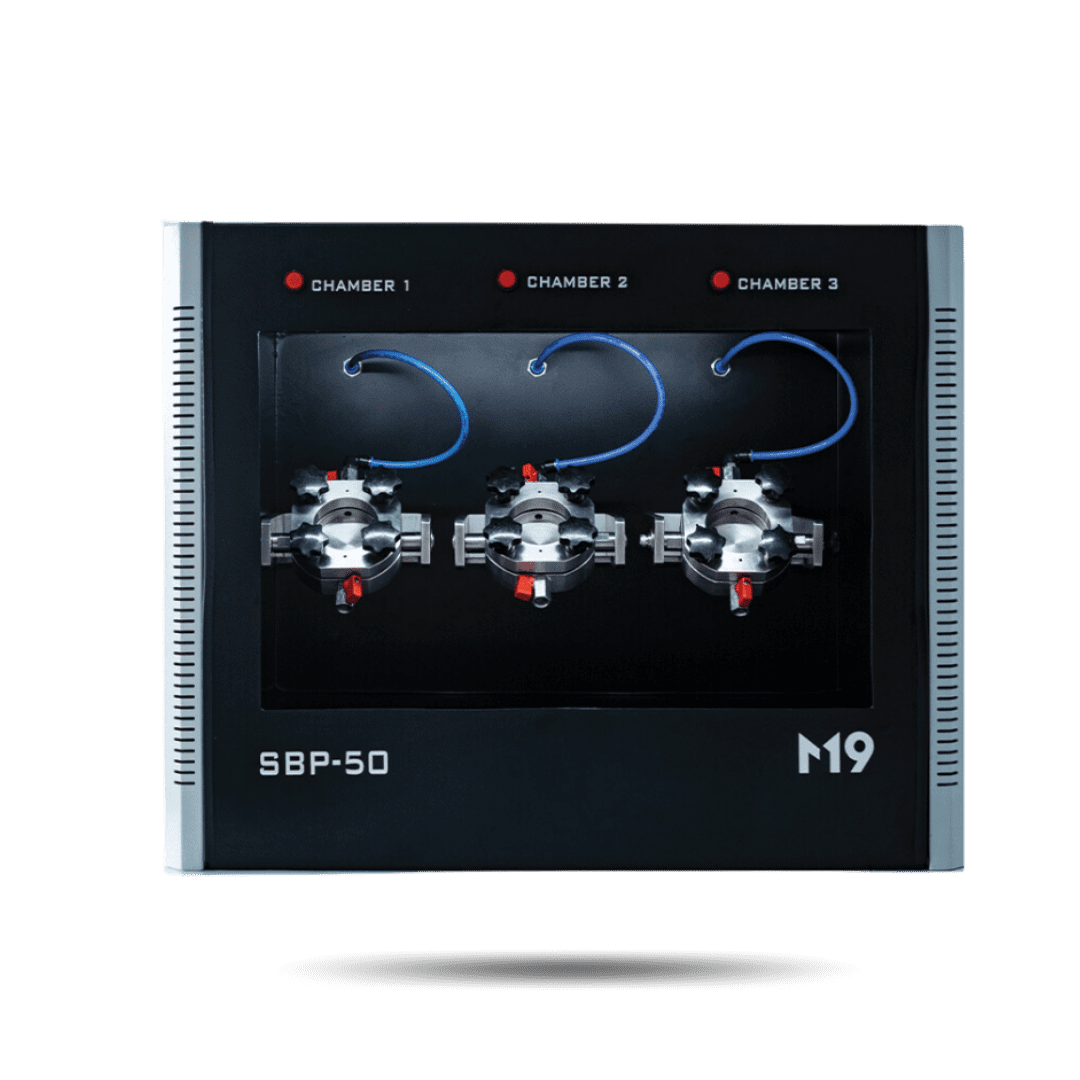
|
|
Moisture Vapor Transmission Rate Analyzer
The Moisture Vapor Transmission Rate Analyzer (Model: MVTR-50) is essential in the technical textiles industry for assessing breathability of fabrics. It assists in product testing, material selection, and quality control by measuring how quickly moisture passes through fabrics. This data guides product development, ensures regulatory compliance, and supports research for innovative textile solutions. The MVTR-50 is an indispensable tool in the technical textiles industry, contributing to the development of innovative and high-performance textile solutions tailored to diverse needs and applications in sportswear, medical garments, and protective clothing.
ASTM E96, JIS L 1099, BS EN ISO 12572
|
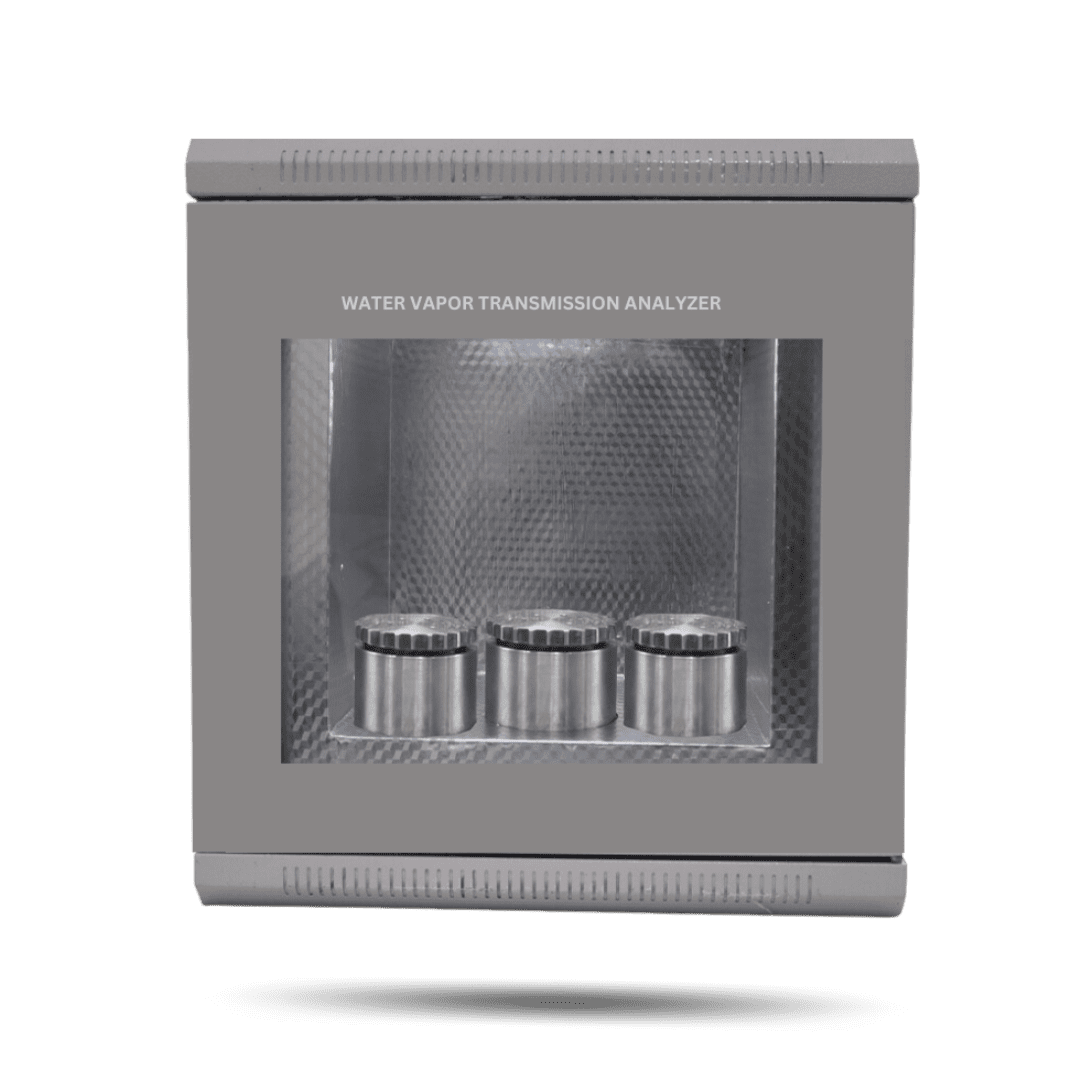
|
|
Particulate Filtration Efficiency Analyzer
The Particulate Filtration Efficiency Analyzer (Model: PFE-50) assesses the ability of textile based filter media to remove airborne particulate matter. The operating principle involves simulating the conditions under which the material will be used and measuring the efficiency with which it captures and retains particles. Particulate Filtration Efficiency Analyzer is a critical tool for ensuring the effectiveness of technical textiles in filtering out airborne particulates. By providing quantitative data on the particulate filtration efficiency of materials, PFE-50 contributes to the development, QA/QC, and standardization of technical textiles across various industries, ensuring the safety and effectiveness of the final products.
ASTM F2100, ASTM F2299, ISO 29463, ISO 14644, ISO 16890
|
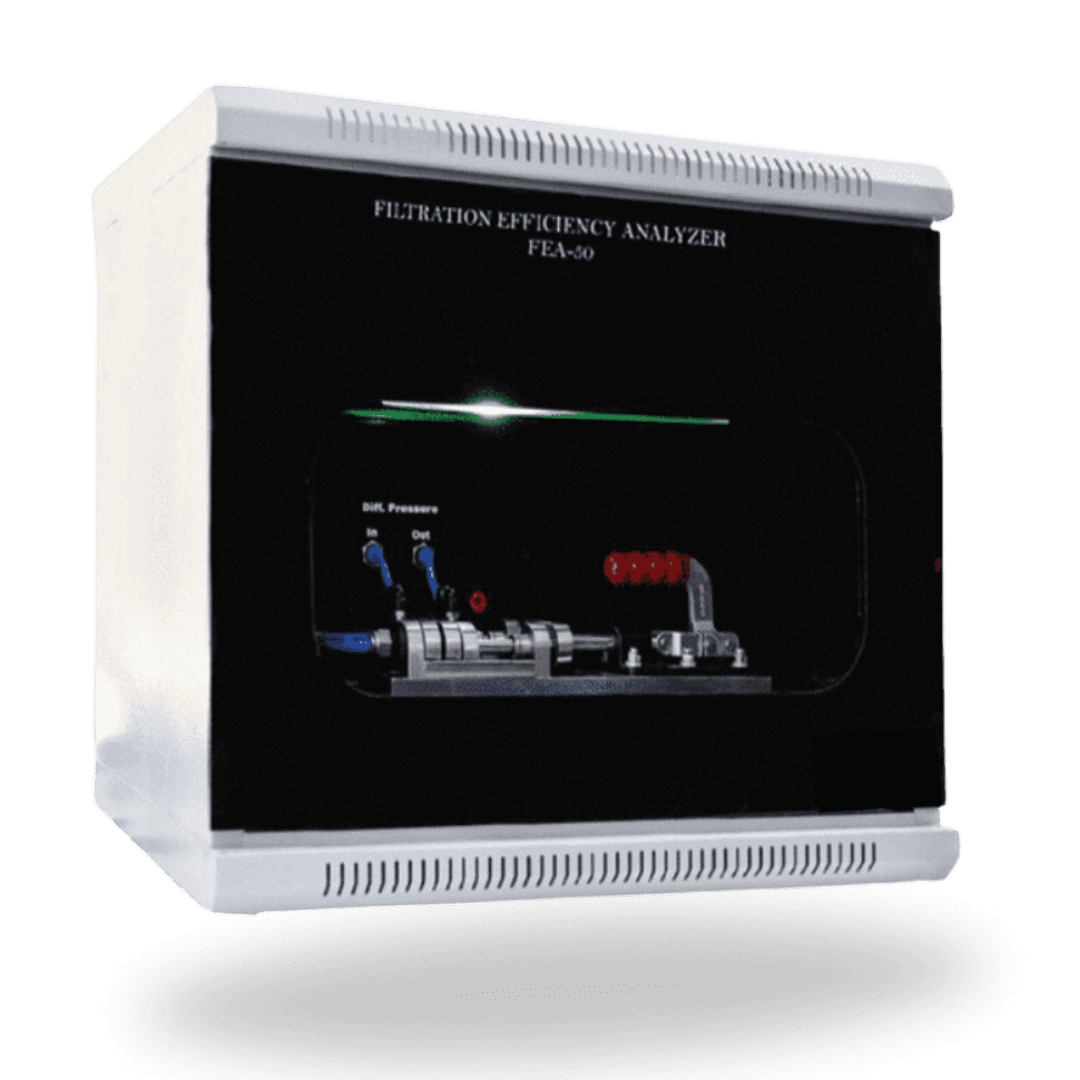
|
APPLICATIONS
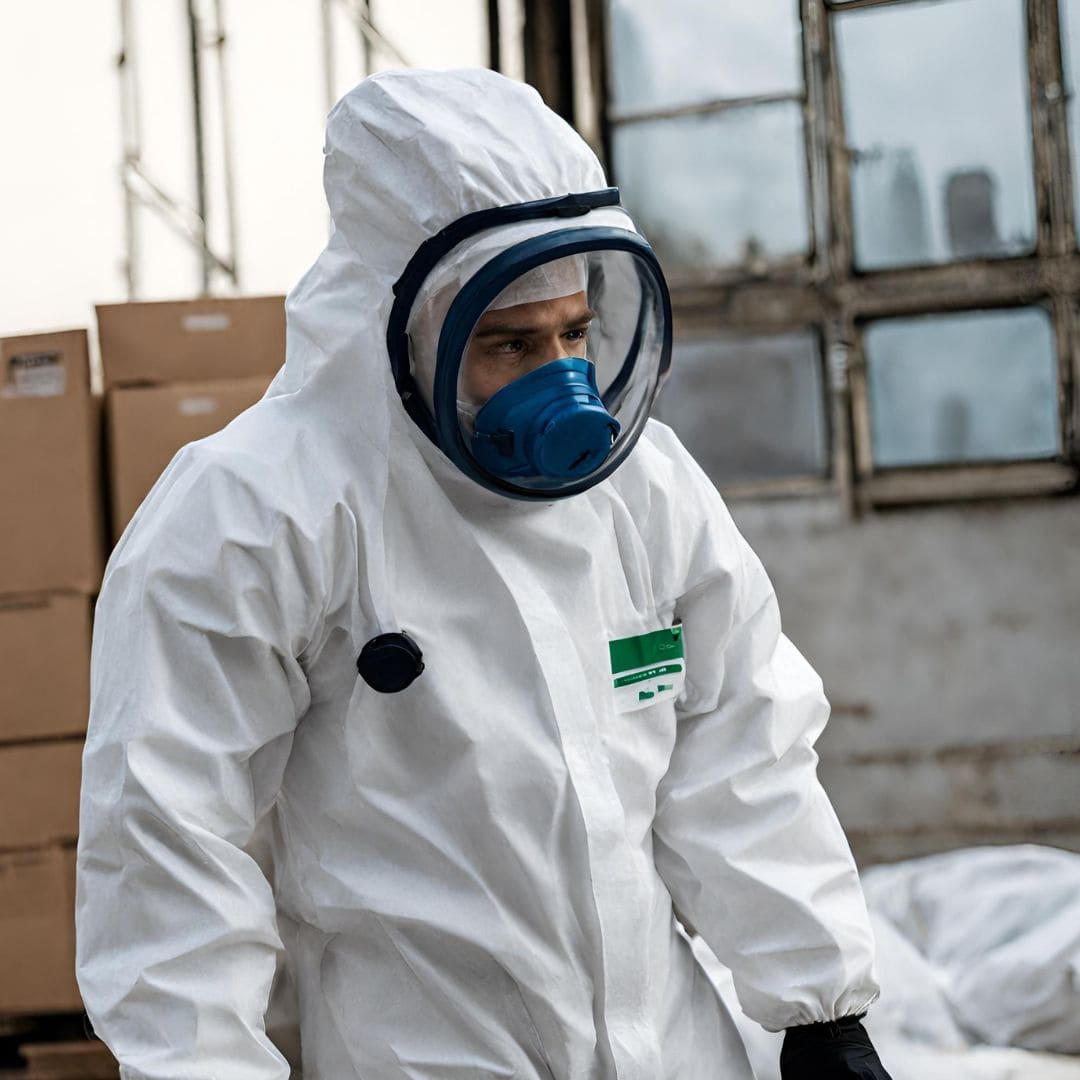
Coverall / Bio Suits
The Armed Forces also use Biological Safety Suits to protect their bodies. They are designated Chemical, Biological, Radiological and Nuclear (CBRN) Suits and come in two pieces for rapid attire. These suits are not positive pressure instead, air is breathed in through a negative pressure respirator.

Sportstech
Sport Textile is one of the branches of Technical Textile, which deals with sport related materials, sports wear and equipment etc. Sport Textiles can be classified under following categories. Sports Equipments: Includes ball, bat, bike frames, sport nets, tennis rackets, ski and surf equipment.
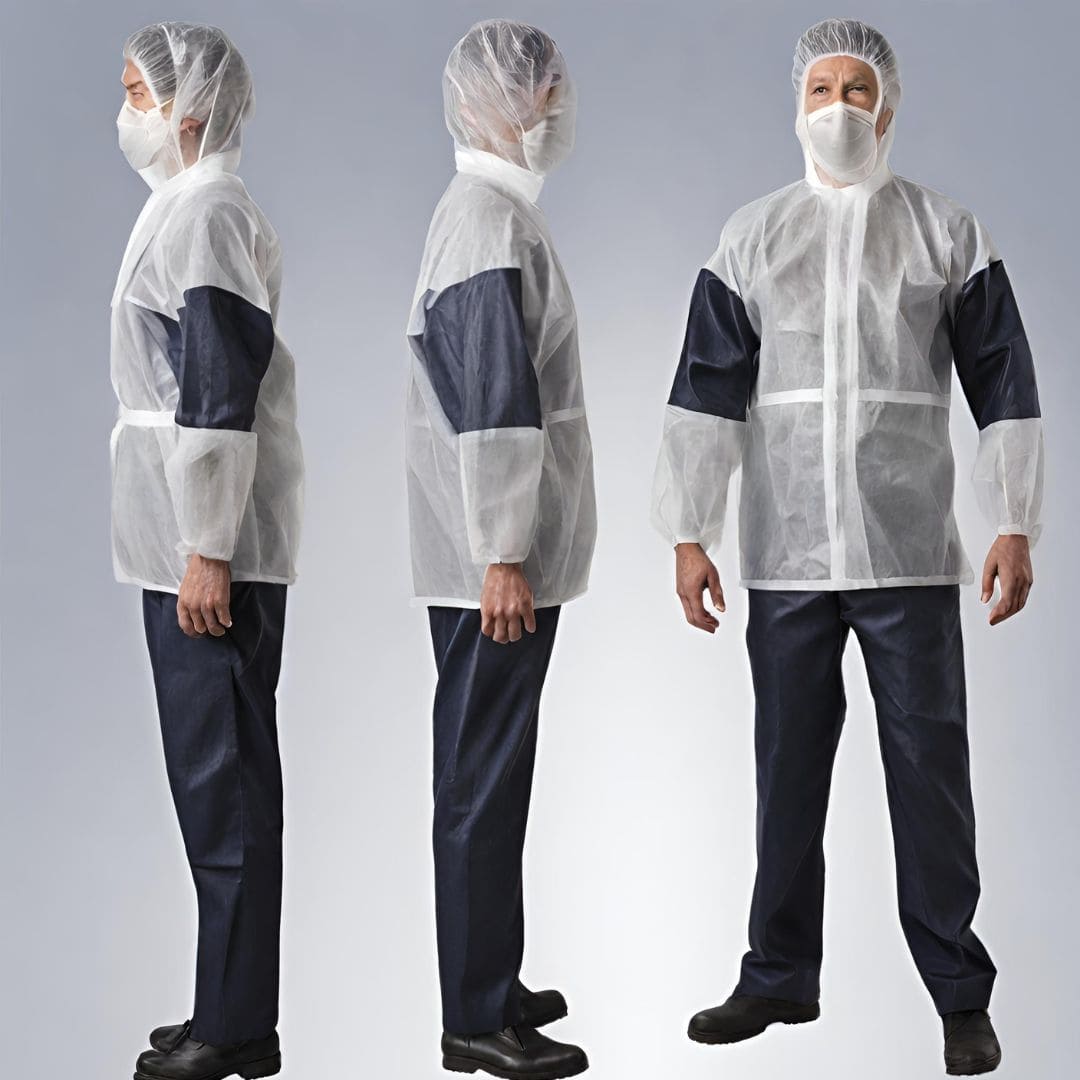
Woven/Nonwoven
Woven Fabrics are more durable and strong than Non-Woven. This is because Woven Fabrics are reinforced by thread crossing thread, which creates a strong barrier. While a Non-Woven could be stronger than Woven Fabric, it's durability is entirely dependent on its materials.



